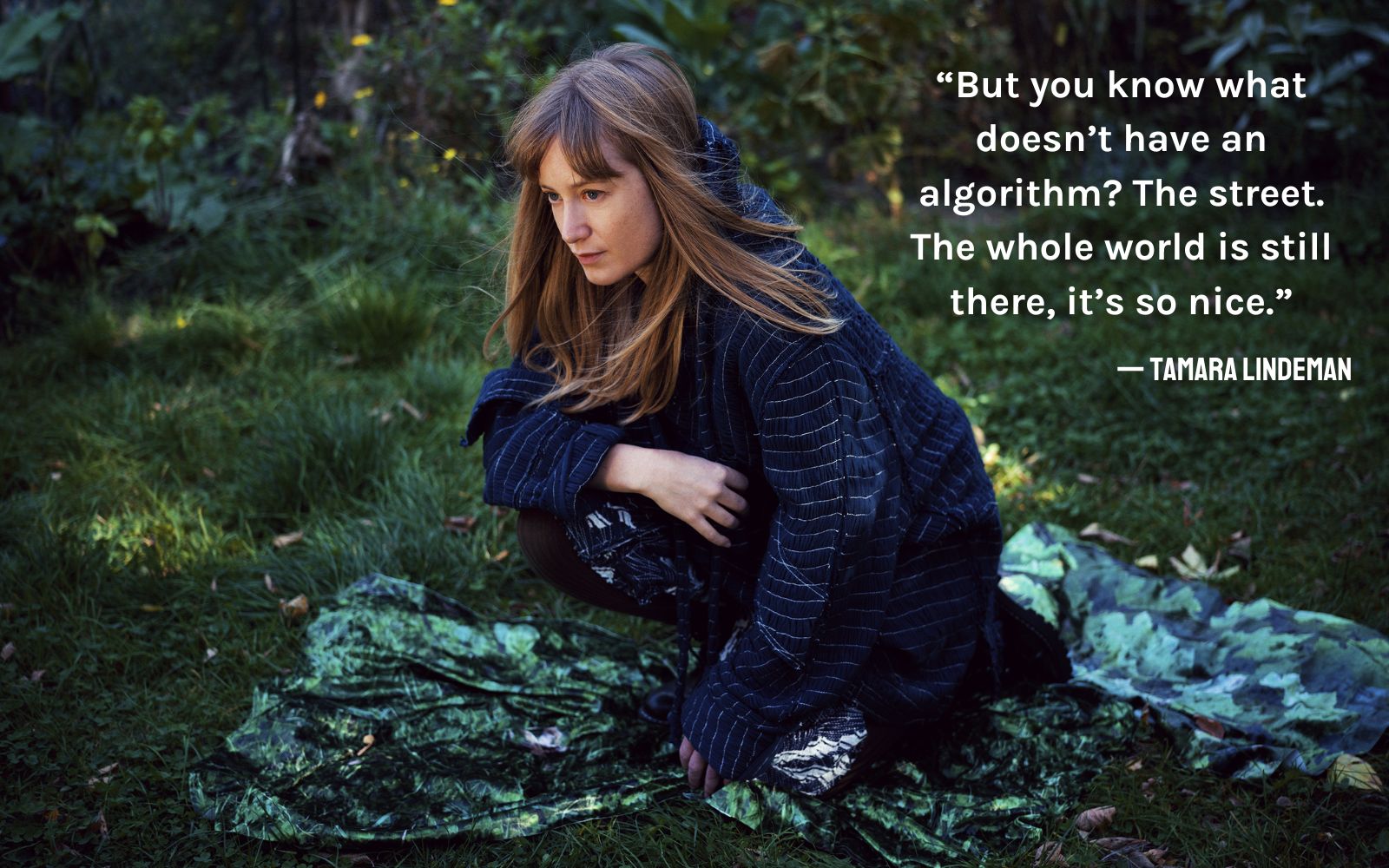By Stephan Boissonneault
With There Is Nothing In The Dark That Isn’t There In The Light, the veteran vocalist leans into intimate, searching folk.
“I think I’m not a very trusting person and I’m realising how great it is when you can really trust someone and they trust you; that’s the most beautiful thing, and yet I do feel like most people are going through life without it,” she says. “It’s something you need, and in the absence of things you actually need, it’s easier to get pulled into the shit.”
A lack of trust in society, corporations, technology and information makes itself known in Lindeman’s music, but it isn’t simply pointing out that lack of trust. She also attempts to narrate how we walk through it, how we learn from it – especially in regards to understanding the moving pieces of climate change and the information we receive about it. Lindeman’s extensive research on the subject has exposed her to just how many lies are being told to protect certain industries.
“Look how hard it is. The amount of psychological pain it must cause people to keep holding that truth back as long as they possibly can,” she says.. “Like god, guys, you don’t have to do it. You could just face facts and accept that it’s going to be a long hard journey.”
In the throes of dissociative disdain towards a constant influx of misinformation funnelling from the pockets of corporations into the mouths of civilians, Lindeman has learned the value in confronting the rising waters at hand, instead of trying to cheerfully ignore that we’re wet.
“It’s the water we’re swimming in. For me to ignore that makes me feel crazy and I think honestly that is the thing that a lot of people are feeling,” she says. “It’s the biggest thing that’s ever happened in human history. It makes you feel crazy to not acknowledge it. You can’t fix anything without looking at it.”


Lindeman has spent years broadening her understanding of climate change, and through both her music and her activism, she seeks to share not only the science, but also the deep and personal connection between humanity and the earth, something she feels is separating with time.
“No matter who you are and what story you’re caught in, you’re still in the same world. The light from the sun still hits you. Put up your aerials. You’re still receiving what’s around you, even if you can’t feel it.”
Humanhood is an album where dissociative existential musings and a grounded reality check shake hands. The album flutters with poetic verses about grief, the body, seeking the unseekable and the confusing placement of the individual inside of a deeply complicated world. It’s a documentation of escapism searching aimlessly for direction, and for hope.
“I do feel like there is a touch of a portrait of someone who is caught by all of these manipulations or ideologies and is slowly crawling back into reality and connection,” she says.
What is learned is that hope and connection are inconclusive, wandering elements that can be held for seconds and lost just seconds later. Within this immense and complicated world is a smaller human narrative, filled with the emotional fluctuations of a people placed on a dying planet with the odds stacked heavily against them. That is where the stories of the collective and the individual intersect.

“Humanity is a collective word, and humanhood is collective and individual. When I discovered that word I felt like I found a diamond,” she says. “It makes me think of teenagehood and how maybe it’s the same messy process. Where I’m at in my life right now is very much a place where I have no interest in utopian thinking or an exile of darkness and badness. We have to hold our complexity and imperfection in order to survive.”
While Lindeman pairs her Joni Mitchell-esque vocals with a wise and practiced songwriting prowess, laying underneath her voice is a cacophony of instrumentation that walks between the folk roots displayed in her earlier releases and the poppier piano-based arrangements that arrived on Ignorance. The wide and varied array of instruments on this record coalesce in a way one wouldn’t think was possible – as interstitials blend synths into sax and electronic drums into banjo, what results is a closed gap between a pre-technological world and one that is flooded with the constant threat of technological reliance looming over our heads.
“It’s like a manipulative relationship, when I’m just looking to find out the weather,” Lindeman says about social media presence and algorithms. “But you know what doesn’t have an algorithm? The street. The whole world is still there, it’s so nice.”
Humanhood can be enjoyed in multiple different mediums, but it’s at its most effective with a pair of headphones on a winter walk, an activity that’s facing dwindling opportunities. The record should be listened to in its entirety, front to back, and without pause in order to let the uneasy and frazzled nestle into a warm and nurturing haze. These songs can serve as fragmented vignettes into the vulnerability of the individual amidst all the traps and failures that surround us, and at the same time, it contrasts that with a reminder of innate human connection through struggle.
“We think we’re more invulnerable than we are. If we understood how vulnerable we were we would not be ignoring climate change. We’re all living in the same soup.”
By Stephan Boissonneault
With There Is Nothing In The Dark That Isn’t There In The Light, the veteran vocalist leans into intimate, searching folk.
By Sam Hendriks
A refined turn toward clarity reveals Melody Prochet at her most grounded and assured.
By Judynn Valcin
Inside the Montréal musician’s shift toward ease, openness, and a sound that refuses to collapse even as it teeters.